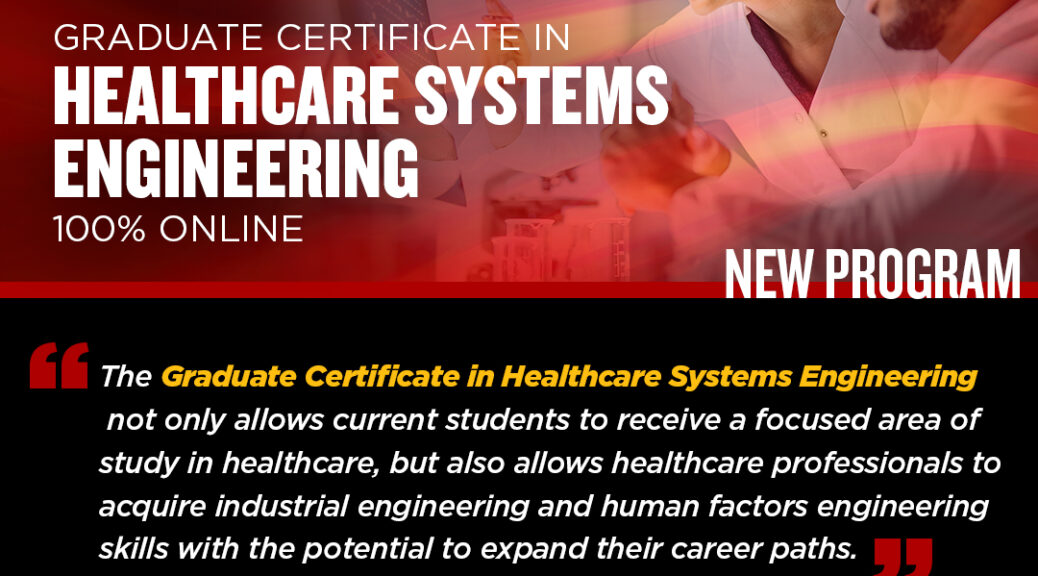
New Online Program: Graduate Certificate in Population Health Management
The University of Louisville in conjunction with the School of Public Health and Information Sciences is excited to announce the launch of our newest online certificate, the Graduate Certificate in Population Health Management (GCPHM). The online Graduate Certificate in Population Health Management is designed for healthcare professionals who want to gain the strategic knowledge and tools needed to effectively understand and respond to the challenges and opportunities within the healthcare industry across geographic and demographic populations. The online graduate program presents a comprehensive overview of the current landscape of different healthcare populations in which students will learn about the strategies needed to forecast and improve healthcare models, understand the intricacies of patient billing and manage population health within the healthcare industry. This 4-course (12 credit hour) program is ideal for working healthcare professionals who seek to transform or create sustainable models for value-driven accountable care and decision making without taking time away from their careers.
Earning a Graduate Certificate in Population Health Management can be a valuable step toward advancing your career in the field of healthcare and public health. Population health management focuses on improving the health outcomes of a group of individuals, considering the health disparities, social determinants of health, and healthcare delivery systems. According to the Bureau of Labor Statistics (bls.gov), the median annual wage for medical and health services managers was $101,340 in May of 2021. In addition, employment of medical and health service managers is projected to grow by 28% in the next ten years, which is much faster than the average growth for all occupations. A Graduate Certificate in Population Health Management can provide you with the expertise needed to advance into leadership roles within most healthcare organizations. Graduates are well-suited to apply their credentials toward advanced careers in the healthcare field such as; Clinical Managers, Chief Population Health Officers, Health Directors, Medical Managers, and much more.
The certificate program is a 12-credit hour program, with each course delivered in an 8-week format, 100% online. The courses in this certificate program include:
PHMS 505: Government and Management of HCOs : This course seeks to provide the student with an understanding of organizations and leadership from dominant ways of thinking about them to ways informed by a complexity perspective. Course participants will read about and discuss a broad range of perspectives about what constitutes an organization and leadership of it. Particular attention will be given to the organizational experiences of the student and the experience of the class in being together.
PHMS 520: Foundations of Public Health in Health Management : This course is designed to introduce new students in the Master of Science in Health Administration (MSHA) to the field of Public Health in the United States. It provides a broad overview of the field of public health. With a population health focus, we look at protecting and promoting the health needs of a community using the tools of public health like the community needs assessment, and including core areas of epidemiology, biostatistics, health promotion, environmental health, and health care administration as well as introducing students to the Foundational Public Health Knowledge Competencies as prescribed by the Council for Education in Public Health (CEPH).
PHMS 610: Health Policy and Analysis: This course will provide an introduction to managing the health of populations. Population health can be defined by geography and demographics. Examples of defined populations include: the population within the catchment area of a hospital, the members of a health maintenance organization, the persons served by an accountable care organization, and the population employed in a workplace. Improving the health of populations has always been a high priority for public health professionals but has been less of a priority for managers of health care organizations, with their focus on the acute-care needs of individual patients.
PHMS 625: Population Health Management : This course will provide an introduction to managing the health of populations. Population health can be defined by geography and demographics. Examples of defined populations include: the population within the catchment area of a hospital, the members of a health maintenance organization, the persons served by an accountable care organization, and the population employed in a workplace. Improving the health of populations has always been a high priority for public health professionals but has been less of a priority for managers of health care organizations, with their focus on the acute-care needs of individual patients.
The healthcare industry is constantly evolving, and healthcare management professionals need to adapt to new challenges and technologies. Earning a graduate certificate demonstrates your commitment to staying current in the field and a smart investment in your future. This certificate will equip healthcare professionals with the knowledge and skills needed to excel in a dynamic and critical industry while opening doors to a wide range of career opportunities. As healthcare continues to evolve, healthcare managers play an essential role in shaping the future of patient care and healthcare delivery. To learn more about this certificate at UofL, or our other online programs, click here.


